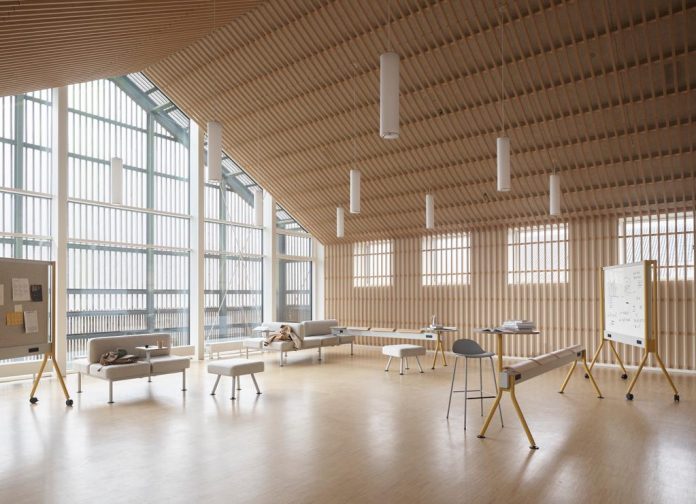The end of summer is the time of year when we are back to school and desks. But how have the places of work and education changed in recent times? It is clear that the profound shift caused by the global pandemic changed the way we work and study forever. Today, we are increasingly moving towards ‘abandoning’ the concept of the workstation in favour of designing dynamic meeting and discussion spaces. Consequently, the world of learning, like the world of work, must respond to the growing need for exchange and participation.
The traditional principles of formal learning – lengthy in-person lectures and campuses filled with back-to-back classrooms – are now under threat due to new technologies and teaching styles that have replaced the majority of in-person learning and lecturing. While learning can take place in both virtual and physical classrooms, spaces in campus buildings are not as flexible, typically serving only one purpose. But how do you foster connectivity and a sense of community when the new normal is so heavily tilted towards an off-site, rather than on-site campus?
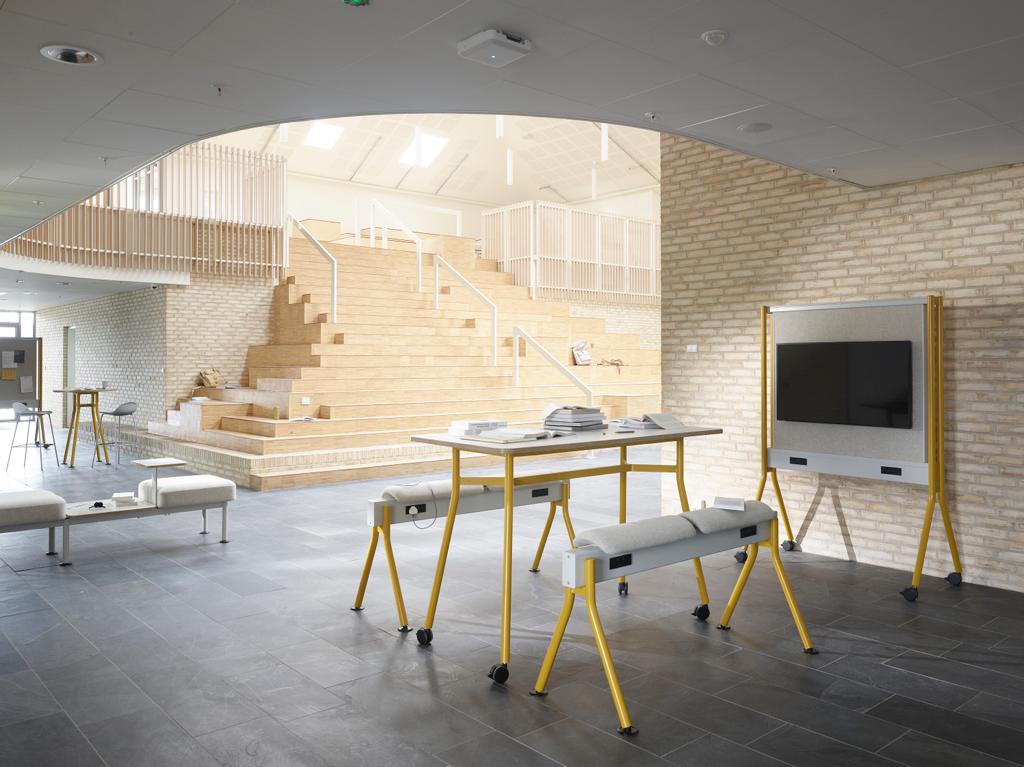
These are the questions posed by CoLab, a project by London-based firm Pearson Lloyd developed with British furniture brand The Senator Group, which explored emerging higher-education models and the changing approaches to work through two years of primary research into global pedagogy trends.
“We often hear that senior people in traditional organisations are struggling to engage Gen-Z in the workplace”, says Tom Lloyd, co founder of Pearson Lloyd. “Our research for Senator has shown that we need to understand changes in how education is being delivered to realise new ways of collaborating with younger generations. The majority of senior staff have received a completely different learning experience from those they are expected to manage. CoLab replaces outdated desk-bound dynamics, creating a future-facing furniture system for classrooms and workspaces that nurtures social and interactive learning and work”.
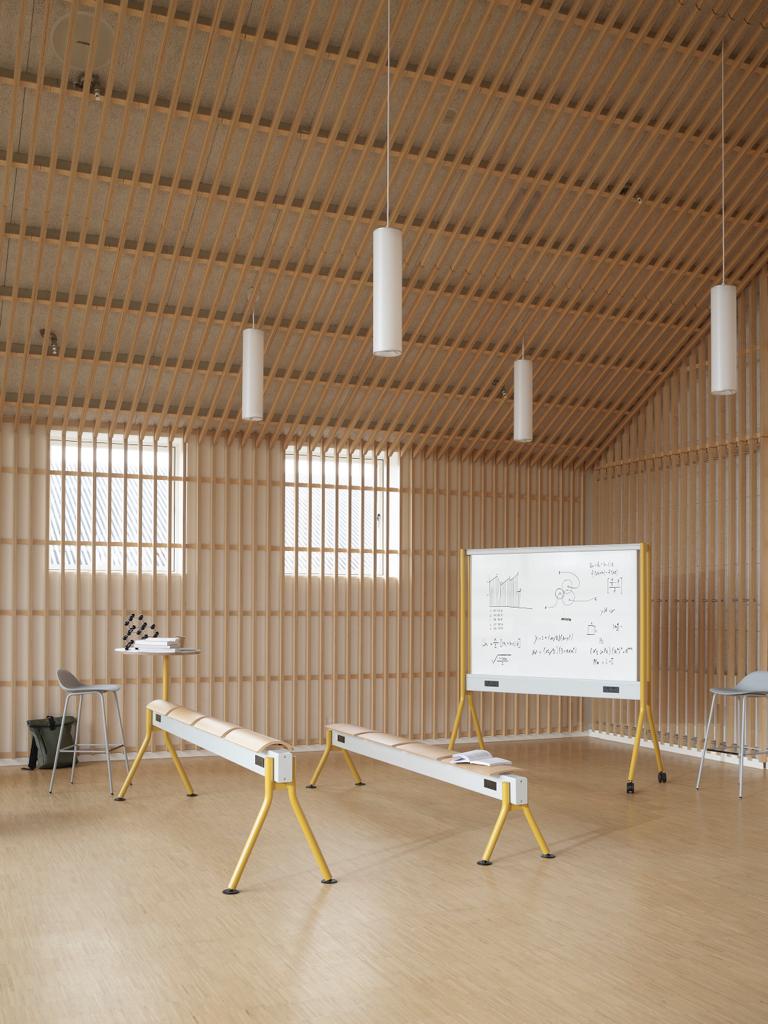
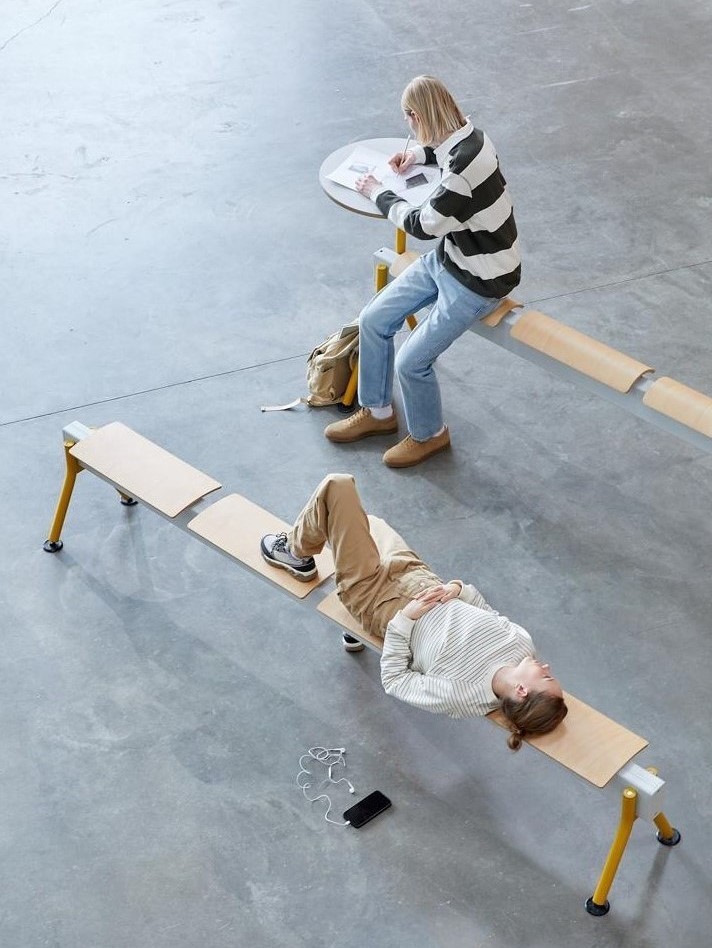
Pearson Lloyd’s research revealed that young people entering higher education are attuned to fluid, multi-directional and collaborative learning and working patterns. The research resulted in CoLab, a new range of furniture that creates next-generation working and learning environments. In collaboration with the Trent Institute for Learning and Teaching (TILT) at Nottingham Trent University, Pearson Lloyd identified the need for an informal, multi-modal and multi-posture tech-enabled learning space that we referred to as the ‘café classroom’, a name that punctually evokes the informal character of the space.
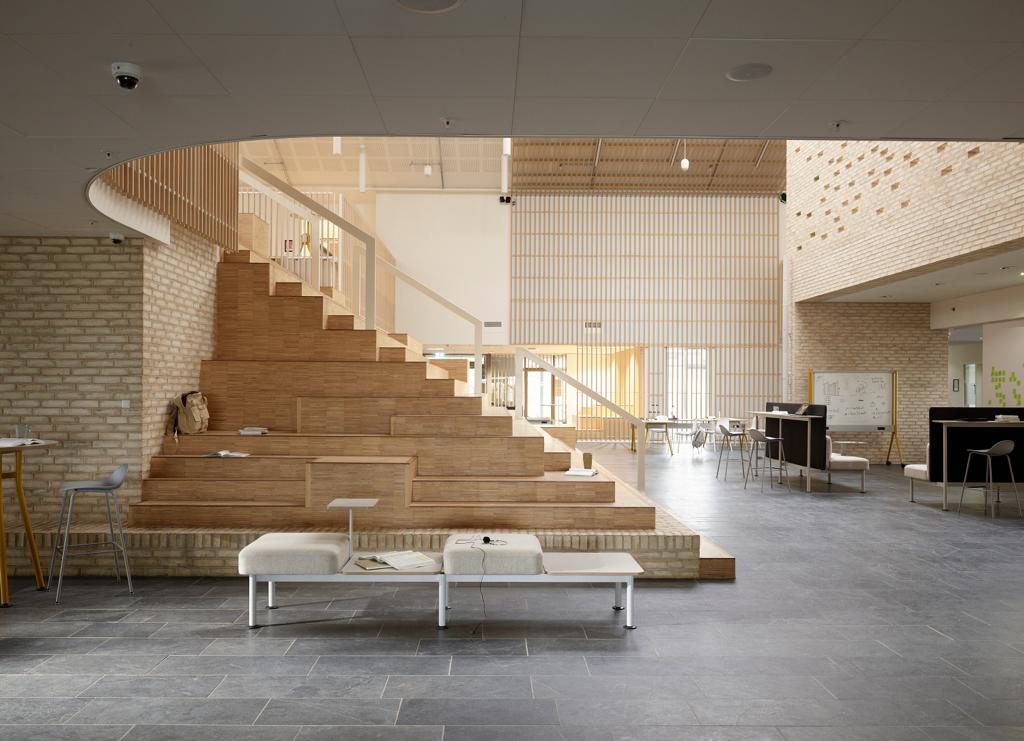
This new environment enabled by CoLab can be used for both formal learning and informal peer-to-peer collaboration, without the need to reconfigure the space. This leads to a greater efficiency in the use of space and the ability to activate redundant classrooms. By creating multiple relaxed and informal learning environments – creative hubs, quiet nooks, social labs, team touchdowns – it expands the classroom beyond the conventional siloed four walls, into the café, library, atrium, corridor, or common room to encourage students and teachers to engage in open discussion and collaboration after more conventional and formal teaching.
The emerging trends that Pearson Lloyd identified were then accelerated during Covid. Lectures are now almost wholly remote and digital with students only coming together in the common spaces to work collaboratively. Curricula are now being designed with much more group work built into the learning process.
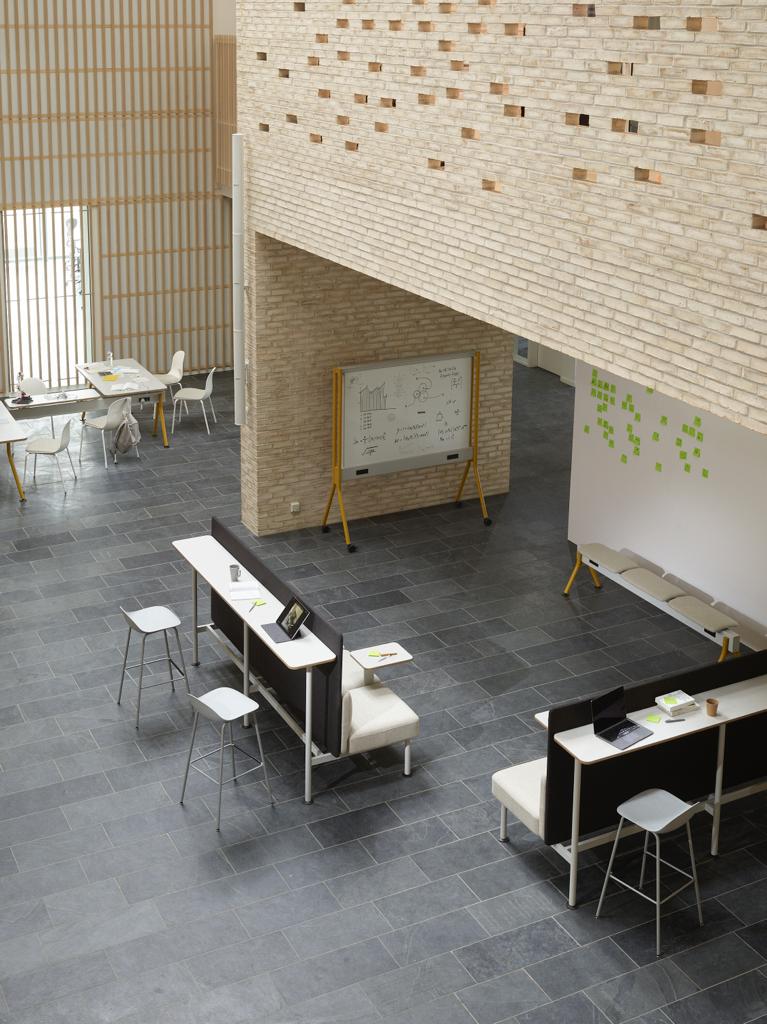
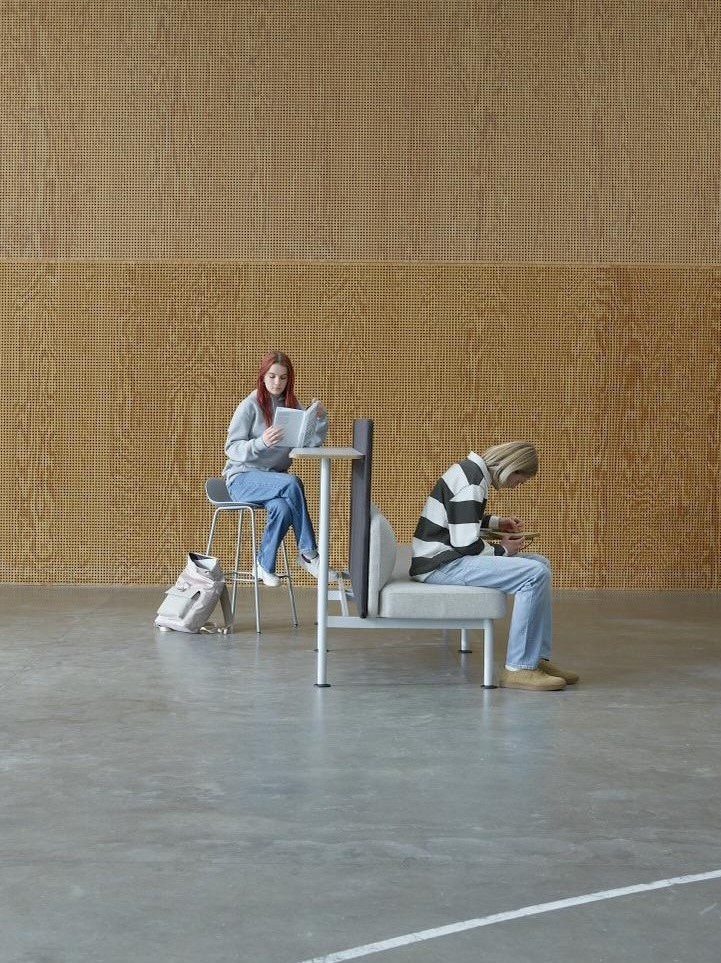
CoLab’s multi-posture design supports a variety of positions and movements, Pick the perfect posture to suit the task, then change when you need to inject fresh energy. CoLab creates environments that support every mode of work, with an integrated power-distribution system to ensure a mains connection is always in easy reach. Thanks to power running through the central seating spine, workspaces are no longer tied to floor-box layouts.
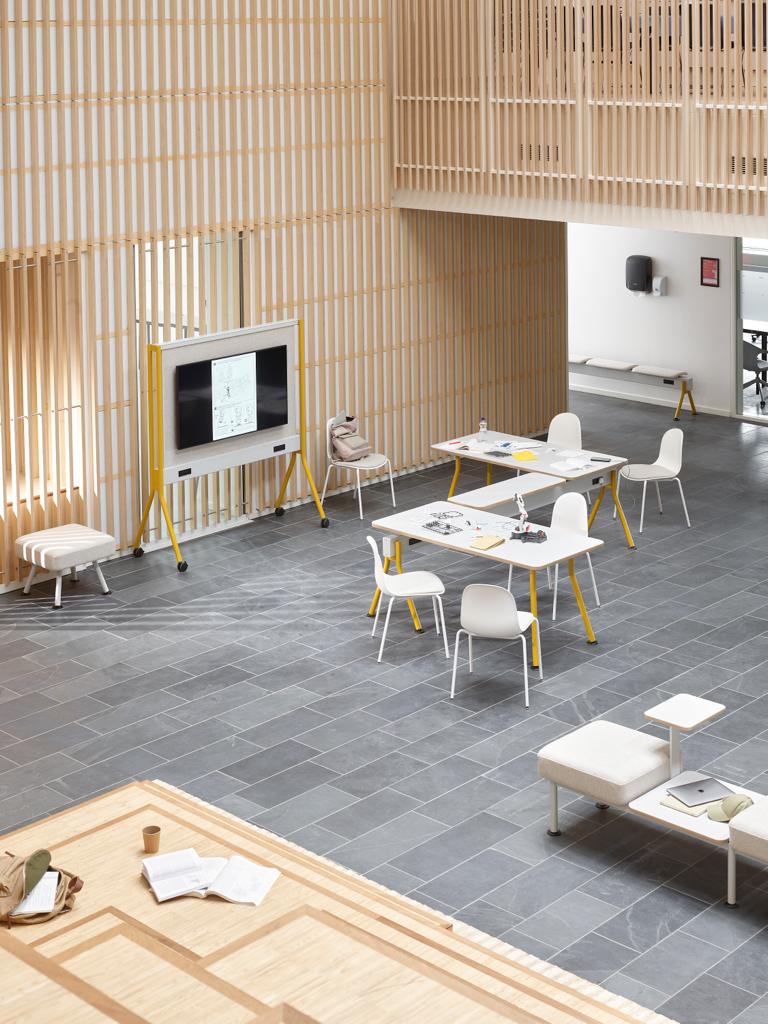
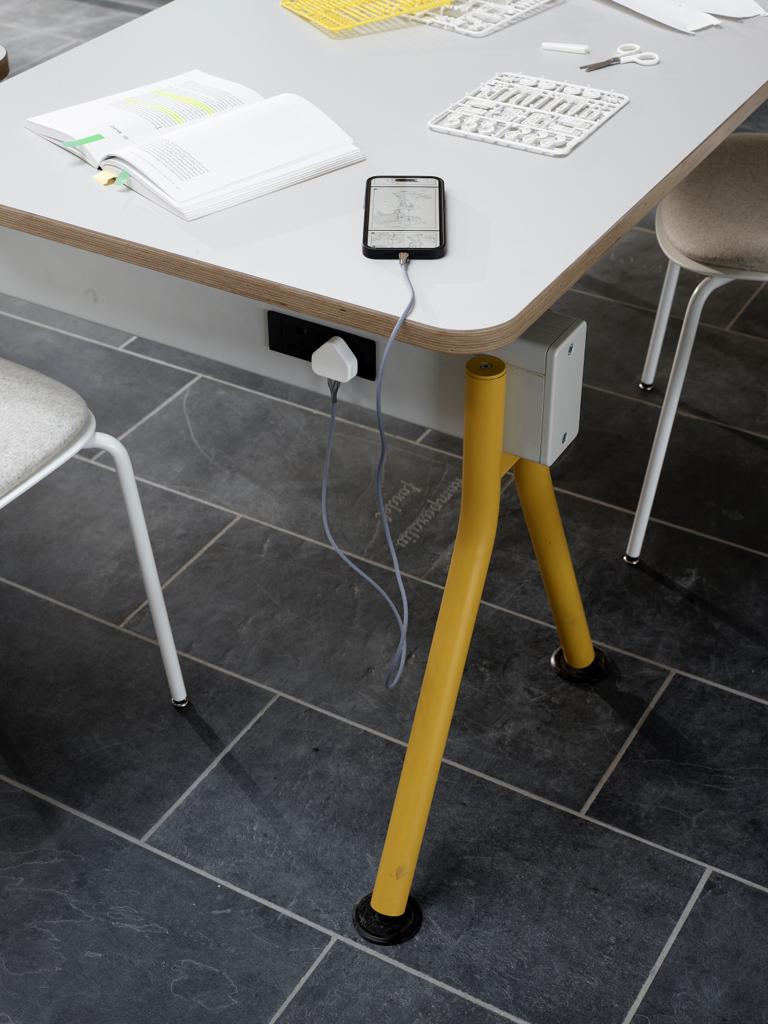
CoLab is constructed to combine the robustness and durability needed for everyday use, while maintaining the warm, welcoming aesthetic and engaging tactility of hospitality furniture. CoLab is designed in accordance with circular design principles, ensuring each component product in the system can be easily repaired. Exposed fixings promote ease of assembly, and simple on-site part replacement. Because no composite materials are used, any parts that do reach end-of-life can be recycled.

